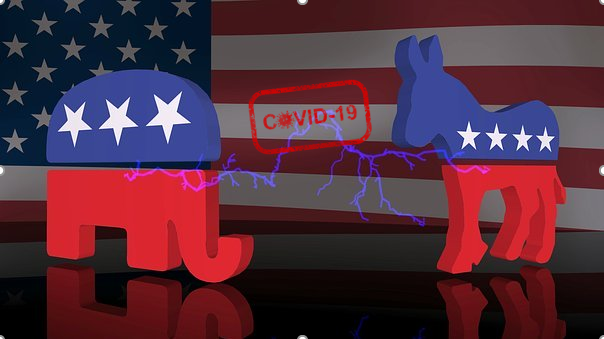Part 4 – Initiatives and Governance

This is the 4th installment of my Election Series (if you haven’t seen my emails, you can check them out here: Part 1: Overview, Part 2: Taxes, and Part 3: Regulation). This piece was written and set to publish before the Vice Presidential debate last night. Any topics that arose will be discussed in our next installment. Or if you heard something last night that concerns you and how it might affect your investments and don’t want to wait until next week – give me a call.
This week we’re going to look at what we can expect from each candidate relating to Initiatives and Governance.
What to Expect From a Trump Second Term—Initiatives and Governance
- Infrastructure. “Build the World’s Greatest Infrastructure System” is the lofty goal laid out in Trump’s reelection plan. He plans to do this through $1 trillion in total infrastructure spending over 10 years, a promise made during his inaugural 2016 campaign. Funds seem to be destined for roads and bridges but also 5G wireless infrastructure and rural broadband, although some Republican members of Congress appear to be baulking at adding this expense to the already costly COVID-related stimulus.
- COVID-related fiscal stimulus. As negotiations on a second COVID-related economic stimulus relief package appear to be at a stalemate on Capitol Hill, Trump has indicated his desire to move forward by signing a number of executive orders that address some small areas of the overall package, such as a temporary payroll tax deferral for lower income taxpayers, continued federal government contribution to extended unemployment benefits—albeit at a reduced rate—and some student loan payment deferrals. Congressional negotiations are ongoing to address the much wider scope of potential stimulus that could exceed $1 trillion.
What to Expect From a Biden Presidency—Initiatives and Governance
- Infrastructure. While there is broad bipartisan support for some kind of infrastructure bill, it was not a top priority under the Trump administration, and there is generally stronger support for a more comprehensive bill on the Democratic side. Infrastructure may be an early priority for a Biden administration as it seeks a bipartisan win. Any infrastructure bill would probably be subject to a filibuster, so the two parties will need to find trade-offs that are ultimately acceptable to both sides.
- COVID-Related Fiscal Stimulus. While the parties have different priorities, they ultimately have found ways to work together to provide COVID-related stimulus. We expect the need for any further stimulus may be winding down by the first quarter of 2021, but if needed, we believe that the parties would ultimately work together to pass further stimulus under a Biden administration, just as they did under a Trump administration, even if the process in getting there is still adversarial.
- Federal Reserve Independence. As president, Trump has been highly critical of the Federal Reserve (Fed), a traditionally independent institution, but thus far the criticism has mostly been about political positioning, and the market impact has been negligible. Nevertheless, a Biden presidency may lower the risk of financial destabilization due to a politicized Fed.
- Municipal Finances. Support for state and local governments may be a higher priority under a Biden administration, including some mitigation of the cap on state and local tax (SALT) deductions and some temporary support, if not already in place, to address COVID-related weakness. Any support may lower municipal bond default risk, which would benefit municipal bond investors. The prospect of higher taxes may also increase municipal bond demand from tax-sensitive investors.
Hopefully the Vice Presidential debate will prove to be more productive than the first Presidential debate. The first one was frustrating, and I was glad that I chose not to sit through it. Next week I’ll share a few thoughts on issues other than economy and investments.




